
views
What does “study smart” mean?
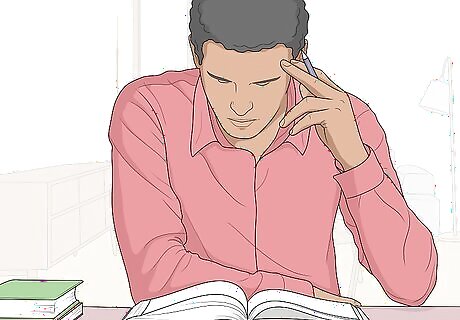
It means using good study techniques and making the most of your time. Don’t waste time trailing off or getting distracted, and focus on your work. That way, you can get the best results out of your study sessions. There is no one particular way to study smart. It’s more about using several effective strategies to stay focused. For example, one person might be trying to watch TV and study at the same time, while the other works in a quiet room and doesn’t check their phone. The second person will have better results because they’re studying smart.
Can’t I just study fast before the test?
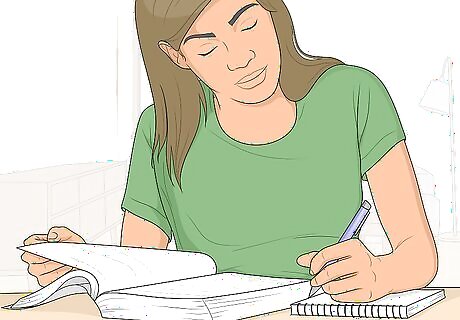
Studying right before the test is never a good idea. This is definitely setting you up for increased stress and a poor grade. It’s much better to spend an hour or so each day studying leading up to a test than spending 5 hours studying the night before. You’ll be fresher during the test and retain information better.
What’s a good environment to study in?
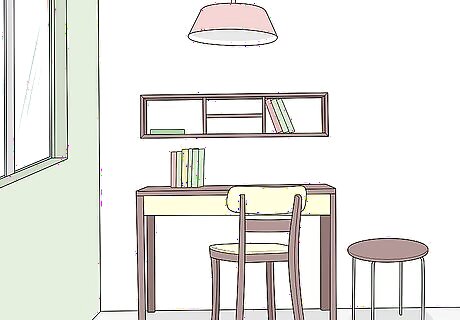
Your study area should be quiet and free of distractions. It should also have good lighting so you can read all your notes clearly. Make sure the area isn’t too comfortable or you might be tempted to rest or take a nap. There’s some evidence that studying in the same place all the time helps you focus better. This is because it trains your brain to know that when you enter this particular space, it’s study time. Also keep your phone and computer away from you unless you’re using them for studying. These all break your concentration. If your home is full of distractions, try to go somewhere quieter. A local library or café might be a better place for you to concentrate.
How long should I study at a time?
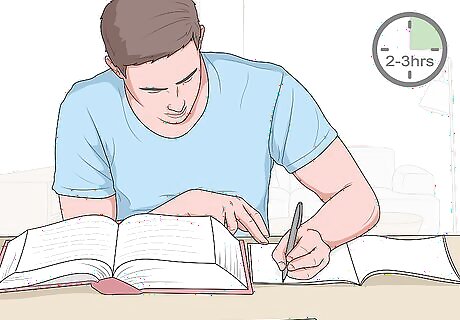
Try studying in 2-3 hour stretches. Then, take a break. That way, you won’t get mentally exhausted and can stay concentrated on your work. Try to reward yourself after a study session. For example, tell yourself “I’m going to have a scoop of ice cream when I’m done.” This keeps you motivated. This particular time suggestion isn’t a hard rule. If you feel like you’re trailing off and can’t concentrate, then take a quick break to try and come back fresh.
What do my classwork and homework have to do with studying?

Your homework and classwork are like practice for tests. By keeping up with both of them, you’ll learn the material more effectively and have to study less when the test comes around. They also help improve your memory because you're consisting absorbing information. Keep up with all the reading you have to do for class. Otherwise, you’ll have to cram a lot of reading in the night before the test.
What is the best study method?

Since all people learn differently, there really isn’t a single “best” method to study. It depends on you and your learning style. The best thing to do is try a few different methods and see what works best for you. Remember that you don’t have to limit yourself to one method that you like. Multiple ones might work for you, so mix it up to cover all your bases.
How do I use my notes to study?
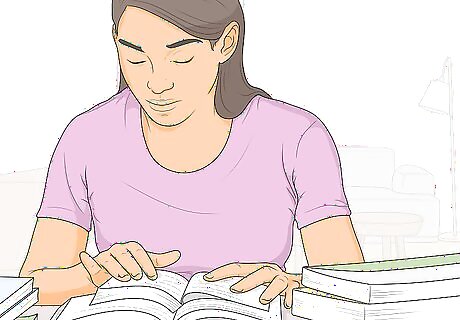
The notes you take in class are a huge help when you’re studying. Revisit your class notes to review the material you have to know. Check if you underlined or highlighted anything, which probably means it will be on the test. Use those notes to draw up your study sheet for the test. Remember that absentmindedly reading your notes isn’t the same as studying. Read through your notes to identify the material you have to focus on, then build your study guide from there. Always take good notes in class. That way, when it’s time to study, you’ll already have a good guide written.
Are flashcards a helpful study trick?
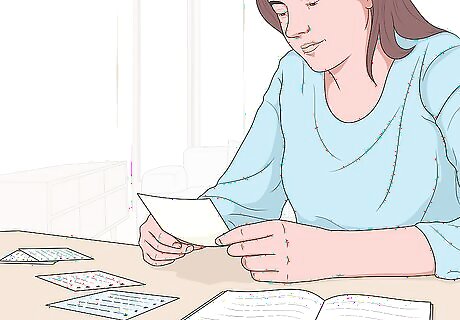
Definitely. They’re especially helpful for learning vocabulary or definitions, but you can also use them for a number of different topics. As an added bonus, flashcards are portable, so you can squeeze some study time in when you’re commuting or waiting for someone. Flashcards are a good tool to use outside of your regular study time. Take a look at them during your downtime throughout the day to review for your evening study session. Making your own flashcards helps you study because creating the cards is like a review of the material. However, you might also be able to buy flashcards that are already made.
Does reading my notes and study guide out loud help?
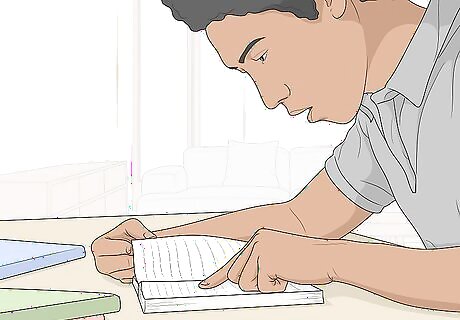
If you’re an auditory learner, then yes it can. Reading aloud or repeating the material might feel strange at first, but can help with your memory and concentration. By reading out loud, you're forcing your brain to focus on the material in front of you instead of trailing off. If you have concentration issues, this can be a big help. This is why studying alone in a quiet place is a good idea. You can read your material out loud without distracting anyone.
Will studying in a group help me?

That depends. Some people find group study more motivating, while others find it distracting. Try forming a study group with some friends and classmates and see if it helps you. If you find it distracting, then study by yourself instead. If you do decide to study in a group, be sure to keep everyone on task. Don’t get distracted and turn the study session into a social gathering. Include students who are good at the subject in your study group. They can help the others understand better. You can also try to teach the subject to your study group. That’s a great way to tell if you understand the material.
Is studying in college different from studying in high school?
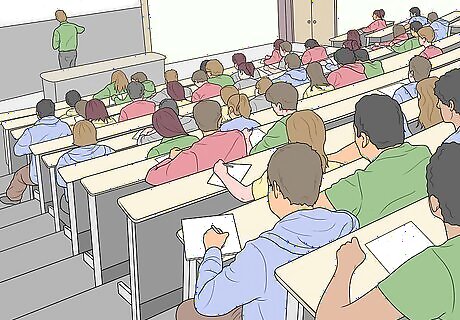
The particular skills aren’t different. You can continue using the methods that work for you. However, college is different because your professors won’t consistently remind you about work that’s due or tests coming up. You really have to stay on top of your own schedule and discipline yourself to keep up with your work. In college, professors usually hand out a syllabus with a class schedule during the first meeting. Check this schedule and write down any important dates in your planner. That way, tests won’t sneak up on you. If you dorm at college, then studying in your room might be distracting. Try going to the library where there are less distractions.
How do I fix my concentration problems?
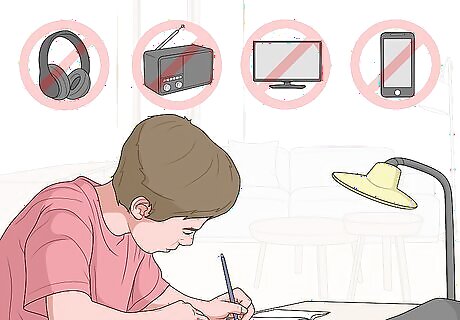
Make sure there are no distractions around you. Turn off the TV and radio, put your phone in another room, don’t listen to music, and avoid anything else that could break your concentration. Remind yourself that you’re studying to do well in school to try and keep yourself motivated. Try reading the notes to yourself out loud if you have trouble concentrating. This can keep you focused and engaged. If you consistently have trouble concentrating, you may have a minor learning disorder. See your doctor to test if you can improve your concentration with treatment.
What if the test is in a subject I’m bad at?
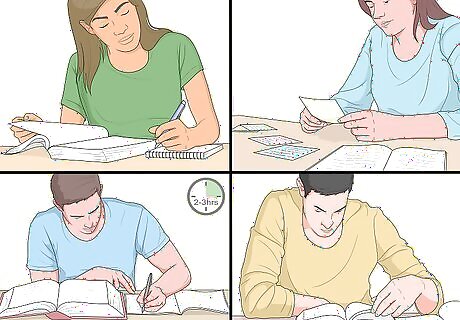
The same rules for studying apply. Free your study area of distractions, keep up with the class material, do your homework, take good notes, review regularly, and take breaks when you need them. You’ll probably have to force yourself to buckle down if you find the subject boring, but following the typical study rules will help you succeed. If you always have trouble in the same subject, then it’s best to ask your teacher or professor for help. They can give you some tips and strategies to improve. You can also work with a tutor to get extra help in a subject you have trouble with.
Can I improve my memory?
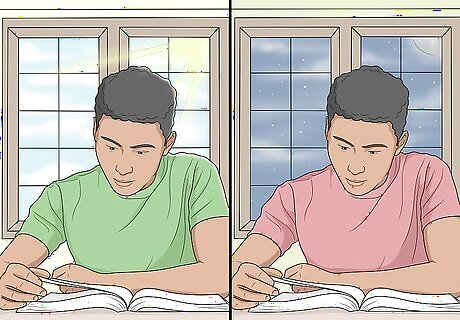
Repetition is the key to memory. This is why studying for a few days before an exam and staying on top of your classwork is so important. It’s harder to remember things if you try to cram at the last minute. Do a little bit of studying every day, even if you don’t have a test coming up. This should help improve your memory. You’ll remember the subject matter much better if you review a little after each class period. That way, you’ll absorb the material and won’t have to struggle to remember it. While you’re studying, try stopping every so often and repeating what you’ve just learned in your own words. This will help the material sink in better.
I feel like I’m not good at studying – how can I improve?
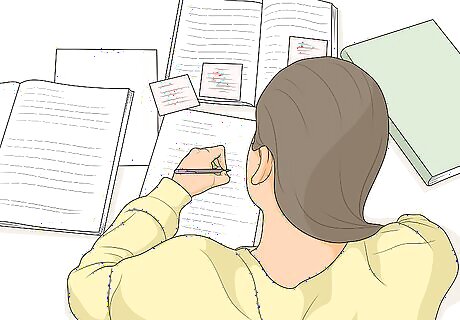
Practice! Like any skill, studying takes repetition and practice to get better at. It won’t happen overnight. Work to improve your study habits and find the methods that work best for you. Then stay consistent and study a bit every day. Eventually, you’ll get used to studying like this and it’ll be much easier.




















Comments
0 comment